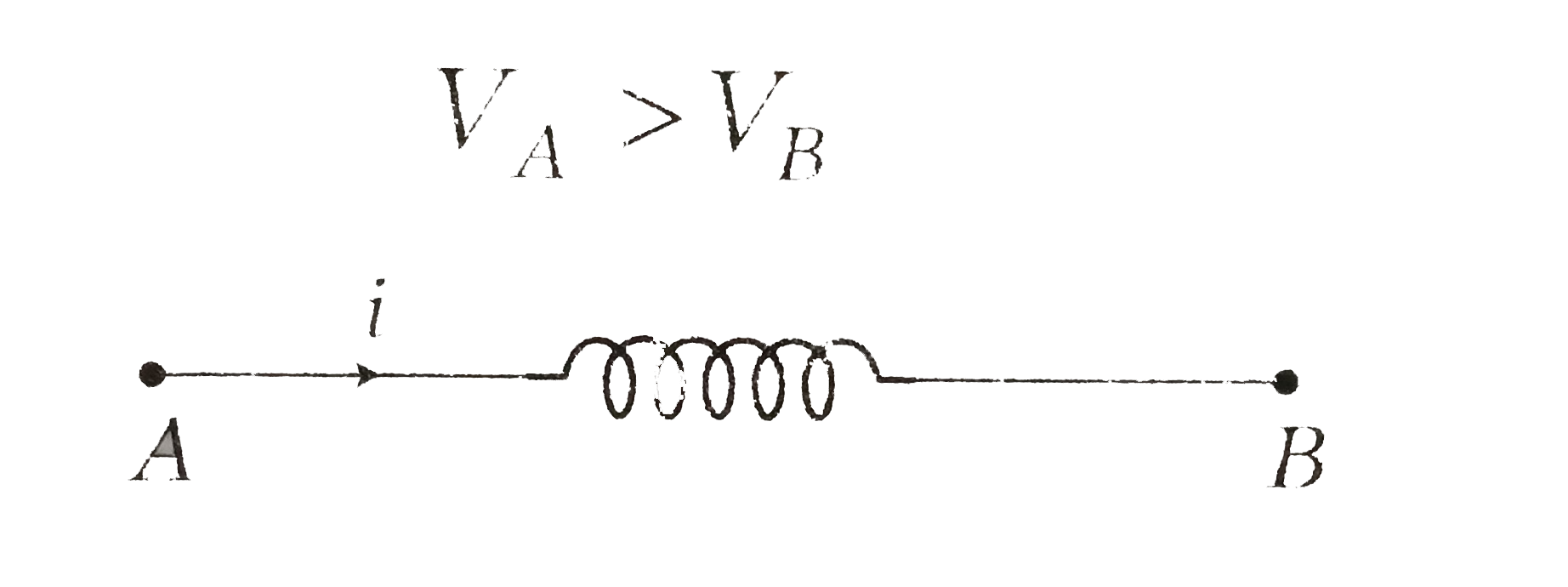In the case of an inductor
voltage lags the current by π/ 2
voltage leads the currrent by π/ 2
voltage leads the current by π / 3
voltage leads the current by π / 4
The correct Answer is:B
In case of an inductor , e = L di/dt
∴ voltage leads the current by π/2.
Similar Questions
Knowledge Check
The reactance of an inductor connected with DC voltage is
AzeroB∞C1ΩDNone of theseThe inductive reactance of an inductor of inductance L is
A12πfCB12πfLC2πfCD2πfLThe reactance of a circuit is zero It is possible that the circuit contains
(i) an inductor and a capacitor
(ii) an inductor but no capacitor
(iii) a capacitor but no inductor
(iv) neither an inductor nor a capacitor .A(i),(ii)B(ii),(iii)C(i),(iv)D(iii),(iv)
The reactance of an inductor at 50 Hz is 100Ω. If the frequency is increased to 60 Hz, the reactance of the same inductor becomes
View SolutionAssertion If current shown in the figure is increasing, then

Reason IF current passing through an inductor is constant, then both ends of the inductor are at same potential.
View SolutionIf an alternating current i = imsinωt is flowing through an inductor then voltage drop ΔVL across inductor L will be-
View SolutionThe equivalent quantity of mass in an inductor circuit is
View SolutionCurrent flowing through an inductor as a function of time is given as follows :
I = 4 + 16 t. here I is in amperes and t is in seconds. Emf induced in the inductor is 20 mV.
What is self-inductance of the inductor ?
View Solution
